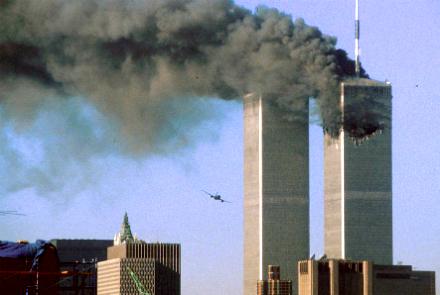It has been 18 years since al-Qaeda members launched attacks on the US but the war in Afghanistan continues and there is no indication that the ongoing conflict will come to an end anytime soon.
The conflict has taken the lives of thousands of lives from Afghan civilians, Afghan security forces and their foreign counterparts.
The 11 September attacks led to the collapse of the Taliban regime and the establishment of a new democratic system in the country. But with the passage of time, the Taliban started regrouping and is waging a deadly war in the country.
The conflict has killed more than 2,300 American troops, injured thousands of others and cost nearly a trillion dollars since 2001.
Afghan Government’s Message On 18th Anniversary of 9/11 Attacks
The Presidential Palace in a statement said that horrific and heinous attacks on September 11, 2001, left a dark day in the history of the United States and the world.
“On the day, the terrorist group of Al-Qaeda committed a horrific crime and launched a series of destructive terrorist attacks in the United States which claimed nearly 3,000 innocent lives, wounded thousands and left billions of dollars of loss to the American people,” the statement said.
In this statement, President Ashraf Ghani said “the government of Afghanistan as a responsible member of the international community conveys its profound sympathies and empathies to the American government and nation as well as the families who lost their loved ones in the attacks”.
He said the tragedy of 9/11 took place when the Taliban regime had already gained ground in Afghanistan and had occupied a majority of the Afghan territory, turning it into a safe haven for the presence and operation of international terrorist networks, including Al-Qaeda and hosting Osama Bin Laden on its top.
“The Government of Afghanistan with the support of the international community, at the top of that the United States, has been fighting on the front lines of the war on global terror alongside with the United States and other major allies and has been paying the ultimate sacrifices to defend the security of the region and the world in the past 18 years, he said.
President Ghani said Afghanistan and the international community, however, face a common threat and the terrorist groups strive to once again turn Afghanistan into their safe haven and launchpad for terrorist attacks.
Critics Fear a Comeback by al-Qaeda
Some Afghan and US experts and senators have warned of a similar 9/11 attack if the US leaves Afghanistan.
“If we left tomorrow, the Taliban cannot be trusted to take care of ISIS and Al Qaeda. They don't have the capability. So when you ask our intelligence community…what would happen to America if we withdrew all of our forces? They tell us without any hesitation it would lead to another 9/11 in a matter of time,” US Senator Lindsey Graham said last week.
The former head of the National Directorate of Security, NDS, Mohammad Masoom Stanekzai said the obstructions which were created by some countries in the region have had left impacts on the fight against al-Qaeda in the country.
He said some elements of al-Qaeda are still operating in parts of Kunar and Paktia provinces, in the east of Afghanistan, suggesting more efforts to tackle them to avoid potential threats.
“Al-Qaeda has not been eliminated completely. This group has the power to come up with their activities in a specific time in areas where they are. There is a possibility that al-Qaeda remerges if it is not stopped,” said Stanekzai.
“Failure is a much bigger word to use,” said Stanekzai when asked whether the US won the Afghan war. “It would be better to say that they remained weak.”
Meanwhile, India’s Permanent Representative to the UN Ambassador Syed Akbaruddin said in the United Nations that peace and reconciliation cannot go forward in an atmosphere of terror.
Referring indirectly to Pakistan, India has told the UN Security Council that the support and safe havens enjoyed by terror groups like the Taliban, the Haqqani Network, LeT and JeM from “beyond Afghanistan’s borders” must be addressed to fight the scourge of terrorism and ensure peace in the war-torn country.
“There is a surge of violence in Afghanistan in recent days, including threats to the election process itself. This has deepened apprehensions that acts of terror are being used to jockey for a place of advantage in the negotiating process,” he said.
“The support and safe havens enjoyed from beyond Afghanistan’s borders by groups such as the Taliban, the Haqqani Network, Da’esh, as well as al-Qaeda and it's proscribed affiliates, including the Lashkar-e-Taiba and Jaish-e-Mohammed, must be addressed,” the Indian envoy said, without naming any country.
Two Afghan analysts said that mistakes by the US in Iraq provided the ground for the emergence of other terror groups.
“America has not ended the war in Afghanistan because they were redirected to Iraq. Mistakes in Iraq once again paved the way for al-Qaeda and other terror groups to get stronger,” political analyst Jawed Kohistani said.
“Besides the failure to eliminate al-Qaeda, other groups were also grown there. I think the US has failed in its mission,” political analyst Ahmad Saeedi said.


